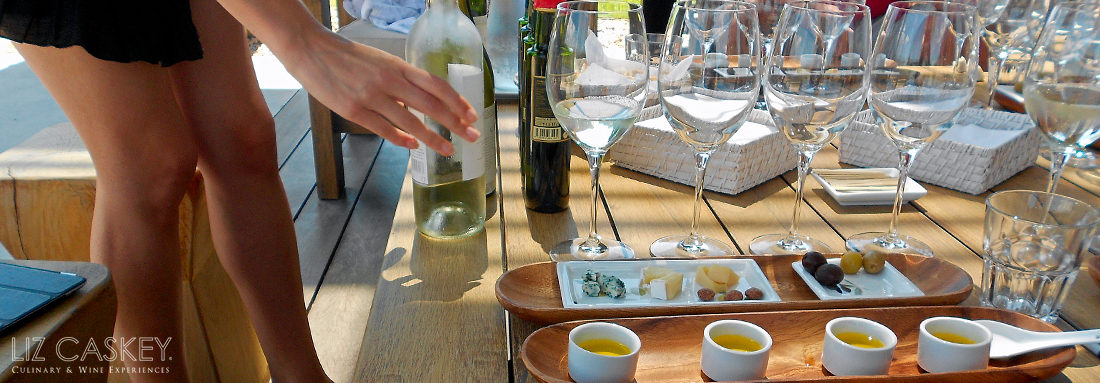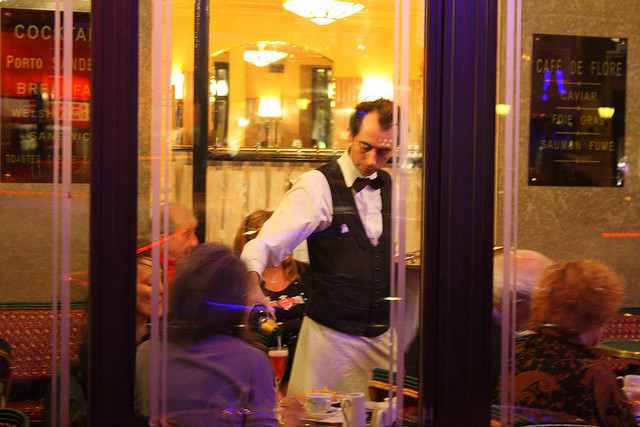You probably have been in this situation. There’s a new restaurant of a well-known chef. It was hard to get a table but you managed to score one. You arrive with your date and the architecture is dazzling. There are beautiful people everywhere and the vibe is super cool. Everything is in order to have a magical, unforgettable evening. You sit down, excited to see the menu and what culinary creativity awaits you. And you wait.
“Wow, they’re pretty busy today,” you think to yourself.
You wait some more. After what feels like an eternity, a waiter appears, says nothing (or gives a weak grin at best), and leaves the menus strewn on the table. Another 30 minute wait to order and savor your passion fruit sour, or martini. “Damn,” you say, “I guess this kind of hot and trendy place is just like this”.
After another half hour, or more, your food arrives. It’s the wrong order. There are no explanations, no “I’m sorry sir (or ma’am).” Just excuses. And so far, there’s been not a single, real smile. The conversation at the table with your date has turned to being worried about how and when the waiter will serve you. The magic of the night evaporated in a big poof. When the bill arrives, finally, you don’t remember that the food was actually pretty delicious nor the innovative architecture. Nope. What sticks with you is the sensation of bad service. Being treated like a second class citizen–and paying for it! You feel empty and unsatisfied even though you’ve just eaten a full meal.
The opposite of this same situation is that upon being seated, the waiter introduces himself more as your host, there to serve you, and proceeds to make you feel at home that night. In reality, that IS his primary purpose in his job. He helps you navigate the menu with patience and great suggestions. He’s at your disposal for anything you may need like filling your water or wine glass before it even occurs to you that you need more. When homemade raviolis stuffed with kingcrab arrive instead of your slow-braised venison, the answer is “No problem, we’ll take care of this immediately”. And while you wait, a glass of bubbly, on the house, shows up. When you leave the restaurant this time, you feel like you have not only had an amazing dinner but also a memorable, exquisite experience. A sensation of having been well attended.
Good service is basically an attitude, a way of being. That’s it. Nothing more, nothing less. After a decade in Chile, I can safely say that the service here tends to be quite spotty and mediocre. That’s not to say that there are not places that have wonderful service in Chile, but half the time, it would appear not to be the case. All it takes is one visit to our neighbor to the east, Argentina, to realize the huge gulf in service that still exists in Chile. So naturally, working in the service industry myself, the question that seriously perplexes me is, “Why is this?” What’s really happening in Chile on a cultural level that bad (or mediocre) service is so wide spread? In fact, I would surmise that many Chileans even expect it and don’t question it. What the heck is going on here? I have various theories, but first, I want to define what, for me, constitutes great service.
Service embodies the energy behind any act or business, and the person providing or giving the service is the vehicle. Service is not something only done to you or with spoken words. Actions most often speak louder than words, and the absence of them too. These are essentially transmitted as signals of the company’s values. That is, how the company views itself and appreciates its clients, the company culture created by employees and how they feel about their job and themselves, and how all of this is expressed to the rest of the world. These factors determine your direct experience and resulting opinion about the place or business–and if you’ll bring your business back there again.
Good service is basically the visible face of any business. The formula is quite simple, like the golden rule: serve unto others as you would like to be served. And always, ALWAYS, give more than is required or expected of you. Not because you have to do it, but because you WANT to. You really care and want to be your best. Good service is always done with respect, a grateful attitude, patience, pride, and love (for yourself and others). Your attitude and consequent service reflect the esteemed person you feel you are–or the lack of that. I truly believe that we are ALL here to serve each other in this lifetime, in whatever it is we do. It is always, or should be, to better and bring more to other people’s lives. Service, in all its manifestations, is the most honorable profession in life. The business(es) that fail to recognize this are usually destined to failure. We all, at our most intimate soul level, seek to be served well and understood. That’s human nature.
Then, the questions that I ask is, “Why is this dynamic of good service something that happens so sporadically in Chile?”
I believe that it begins with the generalized notion here that serving is, somehow, inferior to other jobs. That the person who is in a service position has less worth and has failed to make more of themselves in life. I am serious, this attitude is prevalent here. And it does not only apply to waiters and waitresses in the food business. You can get a sense of it with attitudes and treatment of domestic help, bus drivers, gardeners, even cashiers in supermarkets. The list is endless. In Chile though, where passive aggressive communication is the norm, it is never spoken but heavily insinuated and felt. Actions speak clearly. It is just absurd. I don’t understand it. Really…how could the type of JOB that a person does make them better than another human being?
I will tell you how that manifests in Chilean culture. One word, arribismo. A uniquely Chilean term, arribismo literally means “on top of another”. Or social ladder climbing and seeing oneself as better than another, usually based on social “position” or economic net worth. It is beyond being snobby. It alludes to classism and includes treating other people like crap, primarily on an energetic level. In Chile, it is so engrained culturally from birth that is borders on being an art form.
Unfortunately, when this kind of dynamic takes place, for example with business owners, they treat their employees not like the face of their business, but as lesser human beings. And what follows is resentment towards the boss, their job, the company, and worst of all, the client. This is often expressed with a nonchalant demeanor, reverse snobbism (what they call pequeños poderes, little powers, bureaucracy meant to make you miserable for no reason), or just being unfriendly, unhelpful, and generally not nice.
It’s such a shame. My soul aches when I see this. I try to be compassionate when it happens as it is ignorance. Non-awareness. It is simply not understood that in each and every job we have in our lifetime, we have the opportunity to serve others and express our own potential 100%. Give it our best, no matter what it is we are doing. By acting like the above (negatively), a vicious cycle is created and perpetually repeated. It really only hurts the person(s) not understanding this dynamic. Just like entering a dark room, you can flip the switch and bring light in at any time. If you know the switch exists.
So going back to mediocre service in Chilean restaurants, many times, I observe that the downward spiral actually beginning with the client. They sit down in a huff, yell at the waiter, and treat him/her like a disposable person. The client looks down upon them, snaps at them, ushers them away, throws money at them, and acts as if they didn’t even exist. And most shockingly, I have seen this occur in many of Santiago’s “best” restaurants. In fact, I will be honest with you guys. I even had this happen to me when I catered for wealthy families in Chile right after I quit investment banking to follow my passion (food and wine!).
The good news is, there’s a solution–for everyone. Mutual respect. For oneself and for others. And then, understanding and knowing on a deep level that we are all the same. We all belong and are part of the same world. Thus, in relating this to service, it is understanding that serving foie gras in a 3-star Michelin restaurant is as noble as serving fries and a burger at Burger King–when it’s done with a positively with a true attitude of wanting to help and serve others. Being well attended to and serving others well are simply two sides of the same coin.
Translated and adapted from August column in Placeres Magazine published in Chile. Thanks to Darkb4dawn for great pic of traditional waiter in Saint Germain, Paris.













